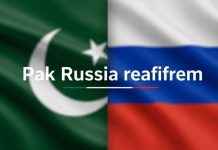ALI SUKHANVER
According to the latest reports, Indian troops martyred three Kashmiri youths in Nagnad Chimmer area of the Kulgram district of the Indian Occupied Kashmir on 17th July, 2020. These three innocent ones were targeted during a cordon and search operation.
Experts say that this fresh act of state terrorism would give birth to new wave of agitation in the valley. In the name of cordon and search operations, such brutal activities of the Indian forces are simply a routine matter particularly after abolishment of Article 370 of the Constitution which granted special status to Indian occupied Kashmir. Certainly this situation is adding more unrest to the region and surely this unrest would affect the world peace directly or indirectly.
A debate on ‘Human rights in Kashmir’ was nominated by the Backbench Business Committee of the UK Parliament after a representation from Debbie Abrahams MP and Yasmin Qureshi MP in the last week of April 2020. During the debate, an assessment report was also presented; its topic was the situation in Indian-administered Kashmir, five months after the Indian government’s August 2019 revocation of the region’s autonomy.
This report was prepared by the US-based Human Rights Watch. The report said, “Since the restrictions in August 2019, the government has taken slow, reluctant steps to ease some of them, but is still falling far short in upholding Kashmiri rights. Many of the thousands arbitrarily arrested – lawyers, shop owners, traders, students, rights activists – have now been released, but reportedly only after promising not to criticize the government. Some senior Kashmiri political leaders, including former chief ministers, remain in custody. The Police admitted at least 144 children had been detained. The government had also blocked phone lines and access to the internet. The government was so fearful of criticism and dissent that it curtailed Kashmiris’ ability to share news of births or deaths, call their doctors, order supplies, research term papers, file taxes, and trade apples and walnuts.”
In the year 2019, after the cancellation of the Article 370 and 35A, the Aljazeera also published a very comprehensive report on cruelties of the Indian Forces in Jammu & Kashmir. This report had a lot of resemblance with the report recently prepared by the Human Rights Watch. The report said that more than 50 residents in a dozen villages in Kashmir were interviewed by their correspondent and they all made the same complaint; the Indian military had raided their homes since India’s government imposed a security crackdown in the region on 5th August. The soldiers inflicted beatings and electric shocks, forced them to eat dirt or drink filthy water, poisoned their food supplies or killed livestock, and threatened to take away and marry their female relatives. Thousands of young men had been arrested. ‘Hats off’ to the callous stubbornness of Mr. Modi that he kept on singing the same song shamelessly; ‘the cancellation of Article 370 and 35A would bring a new flood of peace and prosperity in the Indian Held Jammu & Kashmir’. Where is that flood of peace and prosperity; no one knows.
No doubt the atrocities of the Indian Army in the Indian Occupied Kashmir are the worst example of human rights violations. Kashmir has become a territory of fear and suppression where the innocent Kashmiris cannot even breathe freely. The situation in Indian Occupied Kashmir is getting worse day by day and even the pandemic could not put a full-stop to the human rights violations there. From illegal detention of young Kashmiri leaders to the rape of Kashmiri women, the tale of brutality seems never ending. According to the Kashmir Media Service, only in the month of June more than 50 innocent people were cruelly murdered by the Indian forces deputed in the Kashmir valley, three women were shamelessly gang-raped and more than 25 houses and shops were destroyed. From January 1989 to June 2020, at least 95623 Kashmiris lost their lives at the hands of the Indian forces and more than 11000 women have been molested during the same period as the Indian Army uses rape as a weapon against the local people. Without giving reference to the brutalities done by the Indian Armed Forces deputed in the Indian Occupied Kashmir no report on human rights violations can be authentic. The helpless people on one hand have to face indifferent selfish attitude of the court of law and on the other hand illegal abduction, sexual harassment and use of pellet guns and shotguns by the military troops. Certainly, there must be someone who could put a full-stop to this tale of brutality; Kashmir is waiting for that savior.











